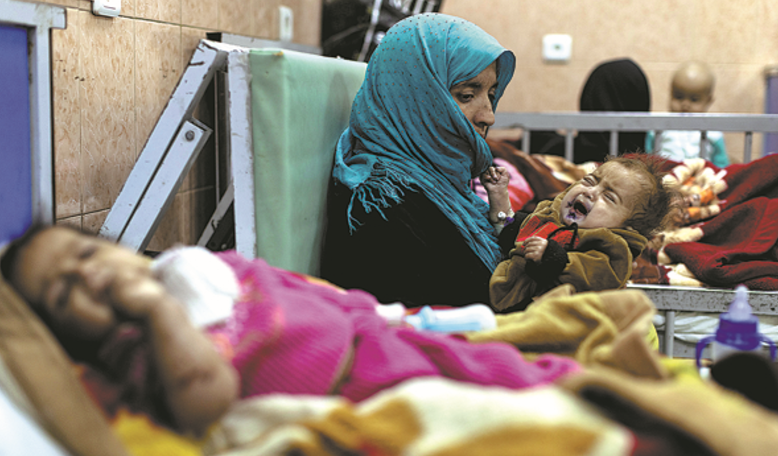Aid groups alone can't save Afghans, Red Cross says
China Daily | Updated: 2021-10-25 09:49

DUBAI-The Red Cross has urged the world to engage with Afghanistan, saying that aid groups on their own cannot stave off a humanitarian crisis.
Afghanistan has been plunged into crisis by the abrupt end of billions of dollars in foreign aid following the collapse of the Western-backed government and return to power by the Taliban in August.
The International Committee of the Red Cross has since increased its efforts in the country, and other organizations were also stepping up, said Robert Mardini, the committee's director-general.
However, support from the world, which had so far taken a cautious approach in engaging with the Taliban, was critical to providing basic services, Reuters news agency quoted him as saying.
"Humanitarian organizations joining forces can only do so much; they can come up with temporary solutions."
UN agencies, aid organizations and a number of nongovernmental organizations are racing to deliver lifesaving aid and supplies to crisis-hit Afghans as winter approaches.
The International Organization for Migration, or IOM, said on Friday that it has been providing essential health services to people on the move and hard-to-reach Afghans and supporting the country to prevent the healthcare system from breaking down.
"IOM has stood on the front lines of the UN's COVID-19 response in the country, with presence currently across four border provinces: Herat, Nimroz, Kandahar and Nangarhar," the organization said.
"Since the beginning of the year, almost half a million people have received essential health assistance from IOM."
On Thursday the UN announced that it had set up a fund to provide cash directly to Afghans, which Mardini said would solve the problem for three months.
"Afghanistan is a compounded crisis that is deteriorating by the day," he said, citing decades of conflict compounded by the effects of climate change and the pandemic.
Thirty percent of Afghanistan's 39 million people face severe malnutrition and 18 million people need humanitarian aid or protection, Mardini said.
"No humanitarian organization can compensate or replace the economy of a country," Mardini said.
The security in Afghanistan has remained generally calm but uncertain since the Taliban took power in mid-August, while the state of the economy has worsened, with higher unemployment and rising poverty.
Agencies - Xinhua
























